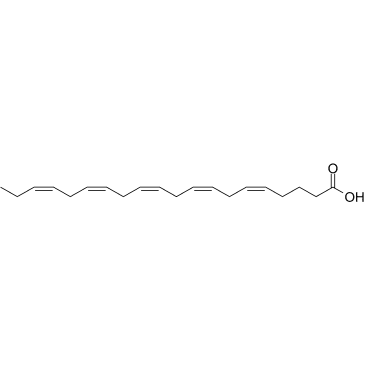Contents
According to medical sources, there is currently a lack of omega-3 polyunsaturated acids in the human body, while the concentration of saturated fats increases. All this leads to the development of cardiovascular diseases, including such life-threatening conditions as heart attacks and strokes. As scientists have found, such consequences can be avoided if you consume in the required amount of polyunsaturated fatty acids, one of which is eicosapentaenoic acid (EPA).
Eicosapentaenoic acid rich foods:
General characteristics of EPA
Eicosapentaenoic acid belongs to the Omega-3 polyunsaturated acids and is an essential component of food. Its main function is to protect our body from all kinds of unfavorable environmental factors (bad ecology, poor nutrition, stress, etc.).
Most of the eicosapentaenoic acid is found in animal products. Fatty sea fish is especially rich in it. The exception is marine representatives grown in artificial reservoirs. After all, artificial feed and the lack of essential natural elements in the diet of fish impairs its nutritional value.
The body’s daily need for eicosapentaenoic acid
Since this acid belongs to the Omega-3 class, it is subject to all the norms and parameters inherent in this type of acid. In other words, the daily intake of eicosapentaenoic acid is 1–2,5 grams.
The need for eicosapentaenoic acid increases:
- with increased physical activity;
- decreased libido;
- with vegetarianism;
- violations of the menstrual cycle (amenorrhea, dysmenorrhea, etc.);
- cerebral atherosclerosis;
- after suffering a myocardial infarction or predisposition to it (various cardiovascular diseases);
- with hypertension;
- under environmentally unfavorable living conditions;
- stress;
- the body’s propensity to cancer.
The need for eicosapentaenoic acid is reduced:
- with low blood pressure (hypotension);
- hemarthrosis (joint hemorrhage);
- reduced blood clotting.
Digestibility of eicosapentaenoic acid
Due to the fact that EPA belongs to polyunsaturated acids, it is easily absorbed by the body. At the same time, it is embedded in the structural elements of cells, providing them with protection from oncological destruction.
Useful properties of eicosapentaenoic acid and its effect on the body
Eicosapentaenoic acid is a regulator of gastric acid secretion. It stimulates the production of bile. It has an anti-inflammatory effect on our entire body. Increases the body’s immune properties.
Reduces the risk of occurrence and course of such autoimmune diseases as, for example, systemic lupus erythematosus, rheumatoid arthritis, etc. In addition, it helps with bronchial asthma and hay fever of various etiologies. Reduces the risk of developing cancer.
Interaction with other elements
Like any compound, EPA interacts with many biologically active compounds present in our body. At the same time, it forms complexes that prevent the occurrence of oncological formations and reduce the level of harmful cholesterol, which has a negative effect on blood vessels.
Signs of a lack of eicosapentaenoic acid
- fatigue;
- dizziness;
- weakening of memory (problems remembering);
- lethargy;
- weakness;
- increased drowsiness;
- decreased appetite;
- neuroses and depression;
- profuse hair loss;
- menstrual dysfunction;
- decreased libido;
- problems with potency;
- low immunity;
- frequent viral and infectious diseases.
Signs of excess eicosapentaenoic acid
- low blood pressure;
- poor blood clotting;
- hemorrhages in the joint bags.
Factors affecting the content of EPA in the body:
- 1 An unbalanced diet poor in seafood leads to a decrease in the content of eicosapentaenoic acid in the body. On a vegetarian diet that excludes seafood.
- 2 Eating large amounts of alkalizing foods (black tea, cucumbers, beans, radishes, radishes) decreases the absorption of EPA by the body.
- 3 In addition, a deficiency of this amino acid can be caused by a violation of its assimilation due to existing diseases. In this case, the doctor should prescribe a replacement diet that has a similar effect on the body. However, such a diet is not able to fully replenish what EPA specializes in. Therefore, if you have no contraindications to eating fish, do not deny yourself a chance to gain health and longevity.
Fish should not be purchased from fish breeders, but caught in the sea. This is due to the fact that fish grown in artificial conditions is deprived of such an important nutrient in its diet as brown and diatoms. As a result, the EPA level of such fish is significantly lower than that of those caught at sea.
Eicosapentaenoic acid for beauty and health
EPA promotes smoothing of wrinkles, the formation of smooth and elastic skin. With a sufficient content of this acid in the body, the condition of the hair improves, they become smoother, shiny and silky. The appearance of nails improves – now you can forget about their fragility and dull color – they become healthy and shiny.
In addition to pleasant changes and healthier hair, skin and nails, another pleasant surprise awaits you – a good mood. After all, eicosapentaenoic acid helps to strengthen the nervous system, which helps to maintain calmness even in the most difficult situations.










